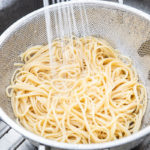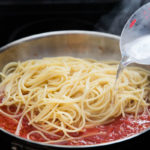Common Cooking Mistakes That Are Ruining Your Food
1 Cooking Mash With Waxy Potatoes
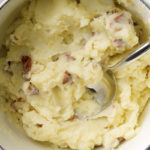
What’s better than a thick, creamy bowl of mashed potatoes? Every cook dreams of creating restaurant-worthy mashed potatoes that are both delicious and smooth. But when it comes to making your mash at home, it might not turn out exactly how you dreamed.
Thankfully, it may not be your cooking skills that create a subpar mash, but the potatoes you use! For smooth, soft mashed potatoes, you should look for Russets or Yukon Gold, which have a high starch content. Red and white potatoes have a waxier consistency that often results in lump-filled mash.
2 Rinsing Pasta
When you strain your pasta after cooking it, rinsing it in cold water might be your normal routine. Plenty of people make this mistake, as they’re told that rinsing the pasta allows the cooking to stop and keeps it from going mushy. However, properly cooked pasta won’t go mushy, and rinsing it could actually do more harm than good.
By rinsing your pasta after it cooks, you force the noodles together, creating a sticky texture that’s entirely unappetizing. Not only that, but you cool down the noodles, which creates a lukewarm dish even after you add a steamy sauce. Eliminate rinsing your pasta noodles from your routine and trust that they’re cooked well. If you can do that, we guarantee you’ll be much happier with your non-sticky dishes.
3 Adding Milk to Scrambled Eggs

Plenty of people add milk to scrambled eggs, hoping for a fluffy, creamy finished product. But the truth is, milk can actually ruin your eggs. Adding milk to your scrambled mixture makes your eggs rubbery rather than fluffy, resulting in a meal that requires far too much chewing.
Instead, add unseasoned eggs to a pan on low heat. Stir the eggs until they’re nearly done, then take them off the pan. At that point, you can add extra seasonings, such as sour cream. Sour cream added at the end of your cooking process will give your eggs the creamy consistency you were hoping for with milk, plus a little extra tanginess in the flavor.
4 Cooking Meat In A Cold Pan
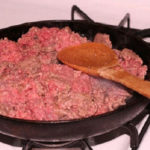
This is a mistake that too many people make and unfortunately spoils your meal. You should never add your raw meat to an unheated pan. This will cause your meat to stick to the bottom of the pan and you will not get a nice, deep sear on your meat.
To avoid these inconveniences and obtain a perfectly cooked meat, make sure to put a little layer of oil to the bottom of your pan and let it heat up. When your pan is very hot, it is time to add your meat. You will immediately see the difference and you will never make the mistake again!
5 Checking On Your Rice While It Cooks
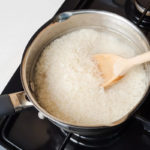
Rice is another dish that just needs to be left alone while it cooks. When you’re not confident in cooking rice, it’s tempting to check every few minutes to ensure that all the water is being absorbed. But when you open the lid to check on the rice, you release both steam and heat, which messes up the rice to water ratio.
When cooking rice, it’s best to just trust the process. Set a timer and don’t allow yourself to touch the lid of your pot until it goes off. Chances are the rice will emerge perfectly fluffy and delicious without any interference from you.
6 Flipping Steaks Only Once
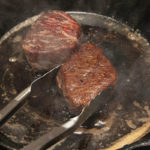
You’ve heard it time and time again: You should only flip your steaks once. As it turns out, that advice is totally bogus. While flipping your steak once allows a nice crust to form on the outside, it also ruins the opportunity for the inside of your meat to cook to perfection.
When you flip your steak more frequently, you allow the inside to cook evenly and eliminate the opportunity for one side to heat up or cool down too quickly. Your crust might not be quite as impressive, but the inside of your meat will be flawless with frequent flipping.
7 Adding Oil to Pasta Water
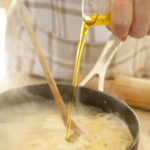
Remember how we said rinsing your pasta after cooking it makes it sticky? Well, some people have noticed the issue, so they try to combat the post-rinse stickiness by adding oil to the pasta water.
Unfortunately, oil isn’t a good solution. While oil will help your pasta not to stick together, it will also keep the sauce from sticking to your noodles. Instead of adding oil, stir the pasta as you cook it to keep the noodles from sticking together. Also, take the pasta out of the water when it’s al dente and toss it with the sauce before it cools. The warm noodles will break apart as soon as they have something new to stick to.
8 Overcooking Onions
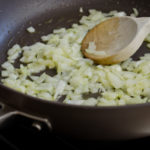
Onions are often the first thing you add to a pan, as they need time to cook and soften into the dish. But many people make the mistake of assuming that their onions require far too much cooking.
Onions only need about a minute to soften up and add their flavor to a dish. Any more time on the stove will result in burnt onion bits that add an unwanted smoky flavor to your meal. Remember, the onions will still cook as you add other things to the pan. Don’t ruin your dish from the start by cooking with burnt onions.
9 Not Seasoning Your Cooking Water
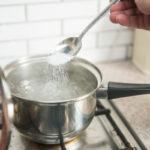
At this point, you should know that you should always salt your pasta water. But did you realize that you should season any water you’re used to cook? If you’re cooking potatoes, salt the water. If you’re boiling veggies, salt the water.
A little salt in the water allows you to enhance the flavor of whatever you’re cooking. Of course, you shouldn’t over-salt your pot. Just add a little sprinkle of salt to any cooking water to take your most basic dishes to the next level in flavor.
10 Not Adding Pasta Water to Your Sauce
When you cook pasta, you often toss out all the water as you strain it. But when you’re pouring the pot of liquid down the drain, you’re actually getting rid of an essential ingredient that could make your dish that much better.
Each time you cook pasta, reserve half a cup of the pasta water and add it to your sauce. The starchy, salty water not only adds flavor to your sauce, but it can also help the sauce stick to the pasta more effectively.
11 Speeding Up The Cooking Process
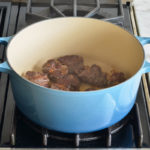
Certain meals are conducive to a short cooking time. If you’re looking to make a meal in half an hour, there are plenty of recipes at your fingertips that will work perfectly. But what you shouldn’t do is try to speed up the cooking process if the recipe demands a long cooking time.
Some recipes, particularly stews, will ask you to simmer your meal for two or more hours. If you’re in a hurry, you might think that you can simply increase the temperature and cook the dish twice as fast. But that’s not the case. While your meal will cook at a higher temperature, a rapid cooking time will ruin the consistency. Instead of a final dish that looks appetizing, you’ll end up with dry meat and a thin sauce with little flavor. Remember, slow and steady wins the race.
12 Marinating Seafood Too Long

When cooking a nice piece of red meat, most people know that more time in the marinade generally results in a better meal. A nice marinade ups the flavor of your dish, and red meats need a while to soak in all those delicious tastes. However, seafood doesn’t need to marinate as long as red meat. In fact, fish, shrimp, and other seafood shouldn’t sit in a marinade for more than 2 hours. If the marinade is especially acidic, you should take your seafood out within 20 minutes.
When seafood sits in a marinade too long, the juices will essentially “cook” the seafood, leaving it soft, mushy, and not that pleasant to eat. A short marinade time works for seafood, so don’t feel that you need to prep your shrimp 24 hours in advance.
13 Using Dried Herbs Instead of Fresh
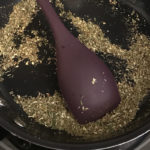
Using fresh herbs can be daunting, especially if cooking isn’t your specialty. You run the risk that the herbs will go bad while sitting in your fridge, meaning you’ve basically thrown money away. Therefore, it’s much easier to buy the packets of dried herbs available at the store.
However, most professional chefs agree that dried herbs simply can’t live up to what fresh herbs bring to a dish. They don’t have as much flavor, which means they don’t pack as big of a punch when added to your meal. Whenever possible, try using fresh herbs and see how it transforms your cooking.
14 Forgetting To Stir
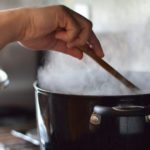
Cooking is difficult for some people simply because it sometimes requires more attention than you’re able to give. If you have a busy life, standing next to the stove and remembering to stir your dish may be too big of an ask. However, forgetting to stir your dish may have disastrous consequences.
You might think you can simply set your meal on the stove and go do other things while you wait for it to cook. However, you need to keep an eye on your dish and be sure to stir occasionally. If you forget to stir, you run the risk that the bottom of the pan will burn. As it burns, that smokey flavor will infuse into your dish, essentially ruining your meal. Unless you’re craving food that tastes like smoke, make sure you factor stirring into your cooking plan.
15 Sauteeing Wet Veggies
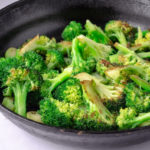
Most people wash their veggies before they cook them to get rid of any excess dirt and grime. However, most people also don’t know that they shouldn’t put those veggies straight into a pan to sauté them.
If you place wet veggies into a pan, the excess water will actually cause them to steam. Instead of crispy, crunchy veggies, you’ll end up with a mushy, unappetizing mess. Instead, make sure you pat your veggies dry before tossing them onto a pan for a quick sauté.
16 Following Pasta Instructions Too Closely
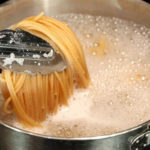
For most at-home cooks, the instructions on the pasta packet offer a great place to start in terms of how long to cook your pasta. However, you also have to give yourself a little wiggle room. The instructions can’t account for the exact conditions in your kitchen or the recipe you’re using. Following them too exactly may result in mushy, overcooked pasta.
Instead, most chefs suggest you should drain your pasta roughly two minutes before the recommended cooking time. Then, you can combine your pasta with your sauce and allow it to simmer for a minute or two. Taking the pasta off early ensures it doesn’t overcook while it’s simmering, and it allows the flavors of your sauce to combine more effectively with your noodles.
17 Not Fully Preheating Your Oven
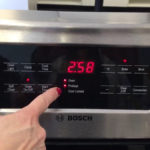
Waiting until your oven is fully preheated sometimes feels like an annoying and unnecessary step. After all, if you’ve allowed your oven to heat for a few minutes, you can tell it’s hot when you open the door. What’s the harm in putting your dish in, even if your oven isn’t at the exact temperature you need?
Well, not fully preheating your oven can have disastrous consequences. As soon as you open the door, the oven temperature drops. If your oven isn’t preheated all the way, it could mess up your cooking time and subsequently your entire dish. In fact, most chefs recommend that you actually wait another 15 minutes after the light goes off to ensure the oven can maintain the temperature once your dish is inside.
18 You Try To Save A Bad Dish With More Ingredients

Sometimes certain dishes end up just plain bad. It happens to everyone—even the best of cooks! However, some at-home cooks will try to salvage their meal by tossing in more and more ingredients.
Unfortunately, adding more ingredients rarely saves the day. In fact, it usually just makes the dish worse. Now, you still don’t have a delicious meal, and you’ve wasted even more food! If a dish turns out bad, don’t be afraid to throw it away. Sometimes starting over is truly the best option.
19 Adding Garlic Too Early
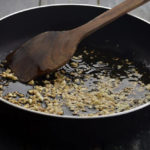
Plenty of recipes call for garlic. It’s not surprising—garlic is delicious and a perfect way to flavor your food. However, the timing of when you add your garlic does matter.
Garlic burns fairly easily, especially if you’re cooking over high heat. If you add garlic at the start of the cooking process, it will burn and you’ll lose all of that delicious flavor. Instead, add garlic closer to the end of your cooking process, or when you have enough ingredients in the pan that you can be sure it won’t burn.
20 Boiling Veggies In Cold Water
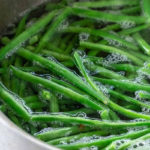
When you boil starchy vegetables like potatoes and other root veggies that grow in the ground, you place them in a pot of cold water and bring it to a boil before reducing to a simmer. That’s completely the right method. However, you can’t use this same technique on veggies that grow above the ground.
When boiling above-ground veggies like corn, start with a pot of water that’s already boiling, as you would for pasta. Dropping these veggies into a pot of boiling water allows the cell walls to soften, cooking the veggies quickly and perfectly. If you put the veggies in cold water and allow them to boil, you’ll overcook them every time, resulting in wilted, unappetizing sides.
21 Not Sifting Flour
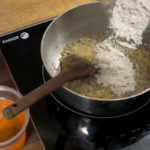
Flour is a key ingredient when baking, but it’s also useful in savory forms of cooking. When making a gravy or a sauce, flour helps to thicken the consistency, creating a dense, rich concoction.
However, you can’t just toss flour into a gravy and hope for the best. You have to push the flour through a sifter as you incorporate it into your sauce. Sifting the flour ensures that you don’t end up with a sauce full of lumps. By adding flour with a sift, you’ll end up with the smooth, thick sauce you’ve been dying to make.
22 Using Cold Ingredients

When baking, the temperature of your ingredients actually matters. It sounds ridiculous, but it’s the truth. While putting together your mixture before placing it in the oven, it’s easiest to grab items like milk from the fridge and put them right into your concoction. However, you should actually allow your ingredients to warm up to room temperature before mixing them into your batter.
By putting room temperature ingredients into your concoction, you allow them to combine more easily with the rest of the components. Your batter will be easier to mix, and your final product will be even fluffier and more delicious. When you’re at the start of preparing your batter, take all refrigerator ingredients out and place them on the counter to allow them to warm up slightly before they go into your mix.
23 Always Choosing Lean Ground Beef
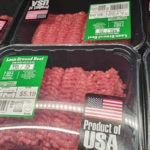
When choosing ground beef at the store, you’re probably drawn to packages labeled “lean”. After all, lean is supposed to be healthier, so why wouldn’t you eliminate some unneeded fat from your meal?
The answer is simple: sometimes you need that fat. When cooking burgers, meatloaf, or meatballs, you should opt for a beef with a higher fat ratio. The fat in the meat will lend some moisture to your food, creating juicy, mouth-watering meals. Lean beef is great for meat sauces, tacos, or casseroles, but the perfect burger requires fatty meat.
24 Adding Ingredients In the Wrong Order
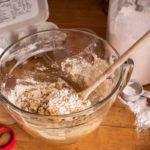
While cooking, it’s tempting to assume that you can just throw everything together and hope for the best. But the order of your ingredients actually matters. By adding certain ingredients at certain times, you’re allowing your dish to develop a rich, complex flavor.
The timing of your ingredients does matter. Don’t ignore the recipe and assume you can toss anything in when you want to. Add the necessary ingredients when they’re supposed to be added, even if it does take a little longer than throwing everything in at the same time. Trust us—the final product will be worth it.
25 Cutting Into Cooked Meat Immediately
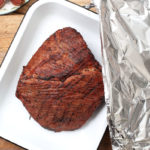
If you’re cooking a nice, juicy steak at home—or any piece of meat, really—it’s a cardinal rule that you must allow the meat to rest before slicing into it. Of course, when you pull the meat off the grill, it’s tempting to dig into it right away. However, the flavor will be much better if you can manage to wait just five minutes.
Allowing meat to rest after it cooks gives the juices a chance to re-distribute after they have been constricted during the cooking process. More juices mean a better flavor, leading to an overall tastier meal. Trust us—those extra five minutes will be worth it.
26 Putting Too Many Veggies On The Pan
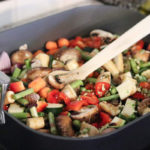
If you’re trying to roast your veggies, you need to give them plenty of space on the pan. Of course, it’s easy to crowd in as many veggies as you can and hope for the best. After all, more veggies lead to an overall healthier meal.
However, if you overcrowd your pan, you run the risk of ending up with soggy vegetables. The more veggies on the pan, the more moisture you have to cook away. If there are too many veggies, you’ll end up steaming them instead of truly roasting them. If you want crisp veggies with that perfect golden brown color, try to put a smaller quantity in the oven.
27 Seasoning Food Only At the End
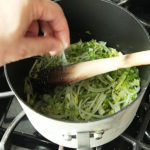
Seasoning your food can be a little scary, especially if you’re an inexperienced cook. You obviously don’t want to create a salty mess or a dish that tastes heavily cumin or turmeric. To avoid that, many beginner cooks under-season their dishes, or, even worse, only add seasonings at the end.
However, adding seasonings as you cook makes for a better meal. By adding the seasonings early, you allow them to infuse into the dish, creating a richer, more complex flavor. If you only add them at the end, your worst nightmare will come true in that your dish is most likely to taste most like whatever you last put in.
28 Not Reading The Recipe All The Way Through

All cooks, no matter how experienced they are, should read the recipe all the way through before they even start to cook. Even if the recipe seems straightforward, there may be some surprises hiding within it.
For example, you might start making your meal at 6 pm so it will be ready in time for dinner. However, you then find out that the sauce needs to cook for three hours, or the meat needs to be in the oven for at least five. Just like that, all your dinner plans are down the drain. If you want to make the perfect meal, make sure you know exactly what you’re doing before you start.
29 Not Prepping Your Ingredients
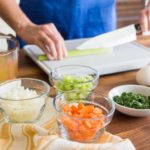
Prepping your ingredients is easily the most mundane part of cooking. Measuring out quantities, chopping up vegetables, and organizing your cooking space can be both tedious and time-consuming. However, having your ingredients fully prepped before you start is the key to making a truly great meal.
Why should you prep? Let’s say your recipe calls for you to fry off onions to start. So, you chop the onions and add them to your pan. But then, the recipe demands that you add both diced carrots and diced celery as soon as the onions start to soften. If your ingredients aren’t prepped, you’ll break the cardinal rule of overcooking your onions, thereby compromising your entire dish. Prep might be annoying, but it will certainly lead to better results.
30 Not Deglazing Your Pan
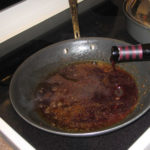
As you cook, you’ll notice that certain elements of your meal start to stick to the bottom of the pan, looking almost burnt. It’s tempting to ignore those “burnt” bits and throw them out when you’re finished cooking. However, there’s actually a way to incorporate those brown patches into your food to make an even better meal.
If you start to notice brown spots, you should definitely deglaze your pan. Deglazing incorporates those burnt bits back into your food, creating a delicious, flavor-packed sauce. You can deglaze with a variety of ingredients, including wine, lemon juice, tomato sauce, and more.
31 Boiling Instead of Simmering
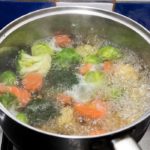
There’s a fine line between boiling and simmering, and some beginner cooks might not know the difference. If you don’t know what makes a simmer and what makes a boil, you might be boiling at the wrong times and wrecking your dish.
A simmer means that a bubble will break the surface of your dish every couple of seconds. If you’re seeing consistent bubbling, you’re boiling your dish. If you boil instead of simmer, your dish will become dry, tough, or both, depending on what you’re making. As you’re cooking, make sure you’re boiling and simmering at the appropriate times.
32 Not Measuring Exactly While Baking
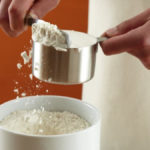
There’s a whole different science that goes into baking something in the oven, rather than cooking it on the stove. If you’re cooking something in a pan, you might be able to get away with guesstimating your ingredients and not adding the exact quantity the recipe calls for.
When baking, however, you have to be very precise in your measuring. The science of baking requires that ingredients be added in exactly the right proportions, in order to end up with moist, fluffy baked goods. Make sure you scoop your ingredients and then level the top with a butter knife. If you try to do some clever measuring, you’ll probably end up with inedible baked goods.
33 You Over-Soften Butter
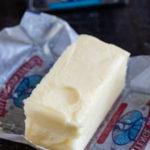
Recipes for baked goods, especially cookies and cakes, often call for softened butter. However, “softened butter” isn’t exactly specific, is it? If you don’t know precisely what softened butter means, you may end up over-softening this ingredient, leading to flat cookies and cakes that are a bit too chewy.
Softened butter should relax under the pressure of a finger, but should still hold its shape. If you can strike that perfect balance, you’ll end up with flawless and flavorful baked goods.
34 Not Rinsing Rice
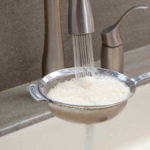
If you’re cooking rice with your dinner, washing your rice before it goes into the pot might seem like an unnecessary and time-consuming step. However, it’s essential to making the perfect rice.
Rice straight from the packet is coated in starch, which can make your grains sticky and gooey once cooked. By rinsing the rice, you rinse off the starchy powder, leading to perfectly cooked grains.
35 Marinating In a Metal Bowl
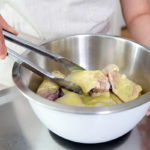
Speaking of marinades, marinating your meat isn’t as easy as throwing it in any old bowl and leaving it alone for 24 hours. Most marinades are very acidic and will react with the metal in a metal bowl. Rather than a delicious dish, you’ll find yourself digging into a meal with an odd metallic flavor.
To avoid imparting a metallic flavor to your meat, stay away from metal bowls when marinading. Instead, marinate your meat in a plastic bowl, plastic bag, or ceramic dish. These receptacles will allow your meat to soak in the flavor of the marinade without imparting any odd tastes to your food.
36 Cooking Potatoes At a Full Boil
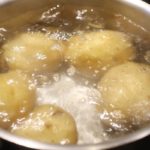
Boiling potatoes is a preferred method of cooking that’s actually not that effective. Many people cook their potatoes at a full rolling boil, only to find that the potatoes aren’t cooked evenly when the water is drained. The outsides are overcooked and too soft, but the insides are still raw. So what’s the problem?
Well, a rolling boil isn’t the best way to cook potatoes. Instead, you should simmer the potatoes for about 15 minutes until you can easily pierce them with a fork. Simmering cooks the potatoes more slowly, allowing them to cook evenly from the outside to the inside. It may take slightly longer, but you’ll end up with perfect potatoes.
37 Not Rinsing Canned Beans
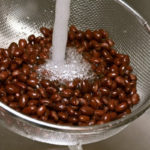
When you open canned beans, you can easily see that they’re sitting in a cloudy liquid. What you might not realize, however, is that simply straining that liquid and pouring the beans into your dish isn’t the correct method. The beans actually need to be rinsed off before they go into your cooking.
By not rinsing the beans, you fail to wash off a whole lot of sodium and extra starch that will find it’s way into your dish. Unless the recipe specifically calls for liquid, drain your beans and rinse them all off in a strainer. Not only will you get rid of any lingering metallic taste, you’ll also create a slightly healthier ingredient to add to your meal.
38 Opening the Oven to Check Your Food
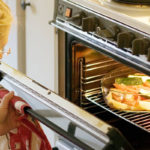
Sometimes the food you’re cooking needs your constant attention. But other times, you simply need to leave your dish alone. Cooking in the oven is one of those times.
While it’s tempting to check on your dish constantly while it sits on the oven rack, opening the oven door might ruin your meal. Every time you open the door, you release heat and decrease the temperature of the oven. When the door is closed again, the oven has to get back up to temperature, which could extend your cooking time. Once you put your dish in the oven, leave it alone until time is up. If you simply must check on it, turn on the light and take a peek through the oven window.
39 Only Using Non-Stick Cookware
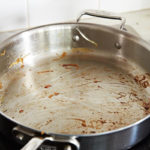
Non-stick pots and pans are a great invention, but that doesn’t mean they should be used for every meal. In fact, most chefs say that you should only use non-stick pans when cooking omelets or scrambled eggs. Why? Because eliminating the brown residue at the bottom of your pan can actually affect the flavor of your food.
As you’re cooking, you’ll notice that brown residue starts to stick to the bottom of the pan. It looks like your food is burning, but it’s actually called “fond.” Fond actually adds a lot of flavor to your dish, particularly if you’re cooking meat or fish. If you want to create a dish that’s truly delicious, make sure you use a pan that allows that fond to develop.
40 Cooking Egg Dishes Until They’re Completely Done

How many times have you heard about the dangers of salmonella? If you want to avoid coming in contact with this yucky bacteria, you need to make sure your egg dishes are completely cooked. However, it’s also possible to overcook your egg dishes, resulting in rubbery, unappetizing scrambles and omelets.
It stands to reason that you should cook a meal until it’s completely done before transferring it to a plate. However, egg dishes should only be cooked until they’re just before done. Then, when you transfer your omelet or scramble to the plate, it will continue to cook, resulting in perfect eggs, every time.
41 Cooking Meat “Just 5 More Minutes”
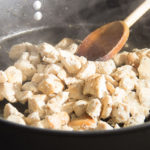
If you’re not a confident cook, one of your biggest fears is probably undercooking a dish. Serving raw meat can be disastrous for your dinner guest’s health. Therefore, plenty of at-home cooks fall into the trap of cooking their meat dishes just a little bit longer to be absolutely sure that the meat is cooked through. However, overcooking is just as disastrous as undercooking.
Cooking your meat “just five more minutes” could be the difference between a moist, tender piece of chicken, or one that is dry and chewy. If you can’t trust your instincts, use a meat thermometer to verify when you should take something off the stove. Also, remember that you can always cook something a little bit more, but you can’t go back in time and keep it from being overcooked.
